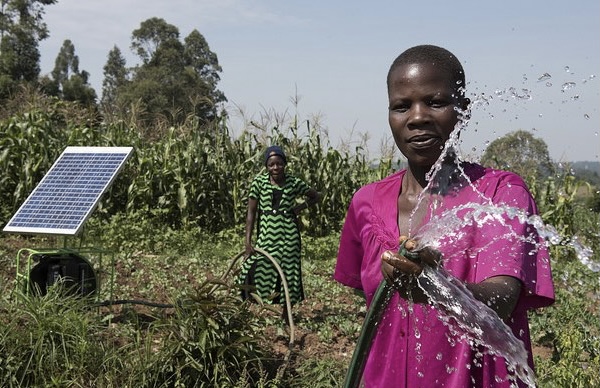KEY POINTS
- Solar farms expand energy access, providing clean electricity to off-grid rural areas.
- These projects create jobs, boost local businesses, and support agriculture.
- Solar electricity in schools and clinic improves the quality of schooling and healthcare in rural Africa.
Sustainable solar power plants are currently enhancing life in the rural areas in Africa, especially where electric power supply is still a luxury.
Due to a sense of emergency marked by more than 600 million Africans not having access to electrical power, renewable energy especially in the form of solar power farm is becoming source of light.
Solar farms have benefitted the continent by offering cheap and clean energy whilst boosting social-economic revolution of the rural areas by capitalizing on the plenty sunlight.
Expanding energy access
The most important impact of solar farms in rural Africa is the extension of the energy supply.
Utility-scale solar projects such as Noor Ouarzazate Complex in Morocco and Garissa Solar Plant in Kenya have proved that solar energy has an ability to meet energy deficit in Africa. In Kenya, the Garissa plant, for instance, is one of the biggest in east Africa and produces 50 megawatts of power for homes and businesses in the rural regions.
The decentralized solar farms also supply energy to isolated villages thus lessening the consumption of costly and environmentally detrimental diesel electric generators.
For example, The Solar Energy Foundation in Ethiopia put in place community solar systems such as solar lights for schools, clinics and homes, transforming rural communities that previously lived in darkness.
Boosting local economies
Solar farms do not only provide power to both domestic and commercial use but also come with essential economic advantages.
These projects give employments in construction of the equipment and installation as well as recurrent employment in the maintenance work which creates income avenues for people living in the region.
For instance, construction of Bokamoso Solar Plant in South- Africa involved over 400 citizens and they are permanently offering employment opportunities to operation staff.
Solar farms also enable small businesses to thrive by providing reliable electricity. Rural entrepreneurs can power shops, agro-processing equipment, and refrigeration systems, boosting productivity and expanding their markets.
In Senegal, the Ten Merina Solar Plant has powered rural communities, enabling farmers to use solar-powered irrigation systems that increase crop yields and incomes.
Promoting education and healthcare
Solar farms are also transforming rural Africa by enhancing education and healthcare services. Off grid schools can now have access to electricity for lighting, computers and interconnectivity which enhances the delivery of education.
In Uganda, the Kyenjojo Solar Project powers schools and provides lighting for students to study after dark, significantly improving academic outcomes.
In healthcare, reliable electricity from solar farms supports the operation of medical equipment, refrigeration for vaccines, and emergency services in rural clinics. The Rwanda Solar Energy Project, for instance, has powered remote health centers, improving maternal and child health outcomes.
Challenges and the way forward
However, solar farms in rural African soil have their own set of issues including; high initial costs, limited access to financing and poor market for maintenance of constructed infrastructure.
These challenges must be addressed, either by providing cheaper financing for the equipment, or through investing in training local technicians to operate the equipment.
The expansion of the solar farm can also also be fostered by regional relations and cooperation with institutional partners from around the world.
Strategies such as the Africa Renewable Energy Initiative (AREI) focuses on its ability to energize funding and technical assistance to support renewable energy projects at scale.
In this regard, by using solar energy as the source of its power, Africa has an opportunity to create a healthy path to the future that would make rural regions true centers of the sustainable development.



